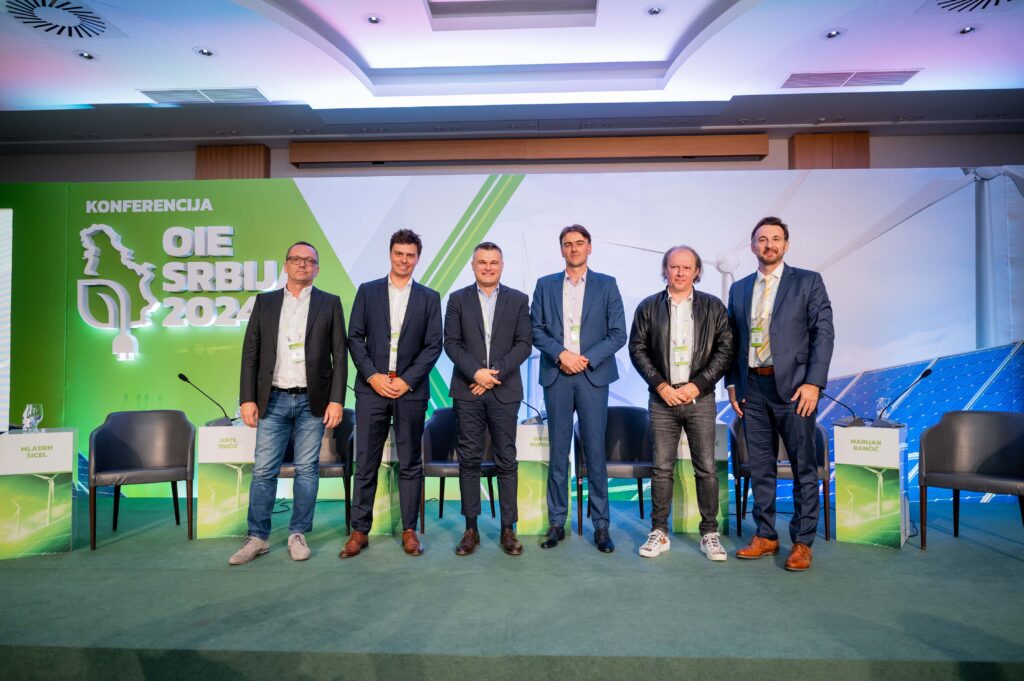Today, the issue of connection is a problem for any project in the region, and investors who diversify their portfolio, wind, solar and batteries, will have the most success in the future – this was the conclusion of the final panel held at the RES SERBIA 2024 conference in Vrdnik.
At the panel ‘Electricity Market 4.0’ participants also discussed the phenomenon of ‘cannibalization’ in the energy sector, the reasons that hinder the development of PPA contracts, as well as the power exchange.
Among the participants were Miloš Mladenović, Managing Director of SEEPEX, Davor Pupovac, Director of Electricity Trading and Risk Management in EPS, Marko Janković, Head of Electricity Market Department of CWP Europe, Ante Tojčić, CEO of Fractal and Mladen Šicel, Head of the Contracting Department of KOER. The moderator was Marijan Rančić, Business Development Director at New Energy Solutions.
The enlightening role of the conference
Miloš Mladenović, Managing Director of SEEPEX, pointed out that the RES SERBIA conference has an “enlightening role”.
– PPA has now entered slang, and at the first conference hardly anyone mentioned it – Mladenović recalled.
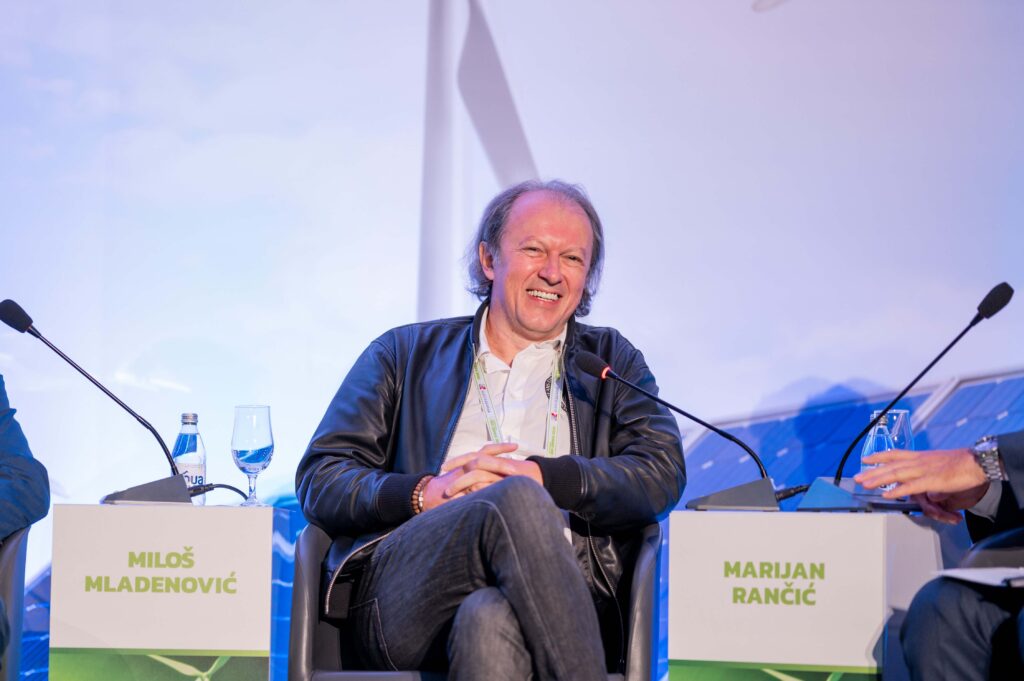
Miloš Mladenović, Managing Director of SEEPEX
He also explained what the current state of affairs looks like. He pointed out that SEEPEX, i.e. ADEX (Alpine-Adriatic Danube Electricity Exchange created by the merger of the Slovenian Stock Exchange and SEEPEX) still has a monopoly on the market, but as he says, it will not be for long, because there will be competition.
– By the end of this year, a merger with the Hungarian HUPX is expected, and the whole concept started with SEEPEX, the regional electricity exchange – Mladenović pointed out.
He added that SEEPEX is ready to accept the physical delivery of all megawatts that arrive, either through auctions or PPA contracts, which, he notes, will be smaller as long as there are auctions.
He emphasized that the Serbian futures market is also working, which is not significant in volume, and a significant participation of EPS and the Electric Power Industry of Republika Srpska is expected. As he says, we are also moving towards market coupling, a mechanism for integrating the electricity market between different countries or regions, but not before 2026.
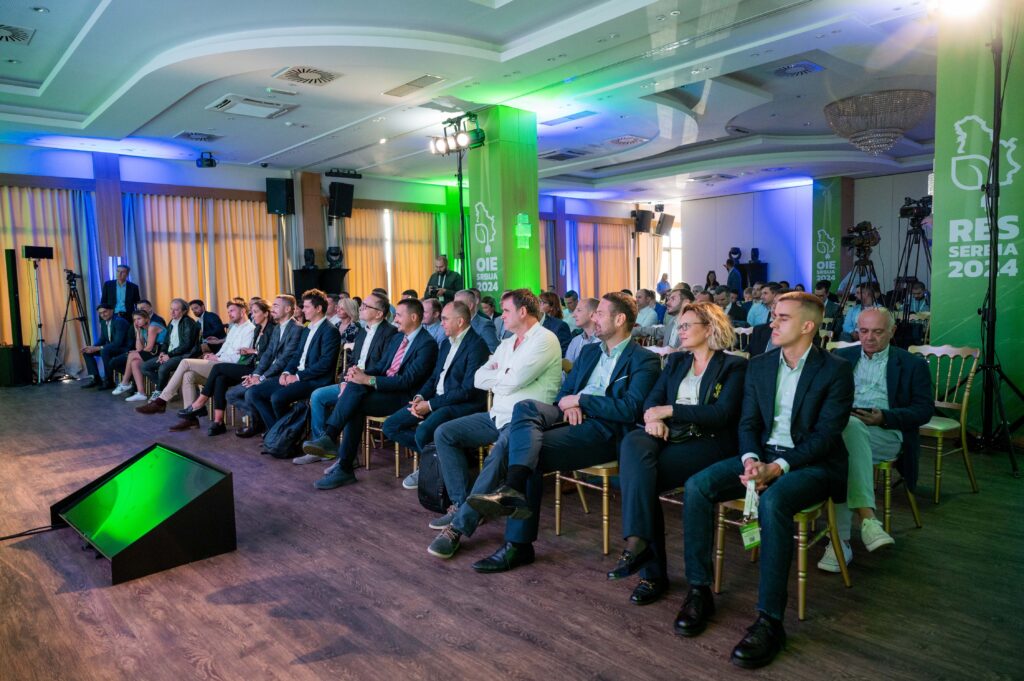
– This is the way to go for an exemption from the application of the CBAM. No one will have market coupling in the region before 2026 – he pointed out, adding that he expects a greater emphasis on the flexibility market, which, as he explains, has not come to life anywhere because the readiness of the transmission and distribution system operator is required.
When it comes to balancing as the biggest challenge for a more extensive placement of renewable sources, Mladenović points out that in some countries, such as Greece, auctions for batteries are being conducted, in order to ensure the security of the system.
– Bistrica will also be a resource that will be able to provide the missing megawatts balancing power – concludes Mladenović.
Is Serbia’s energy sector ready for PPA contracts?
Despite the fact that most of the panelists at the conference said that PPAs should be developed, the Head of Electricity Market Department of CWP Europe, Marko Janković, pointed out that we often overlook the question of whether the energy sector of Serbia is ready for PPA contracts, which are concluded directly between producers of electricity from renewable sources and consumers, i.e. the company.
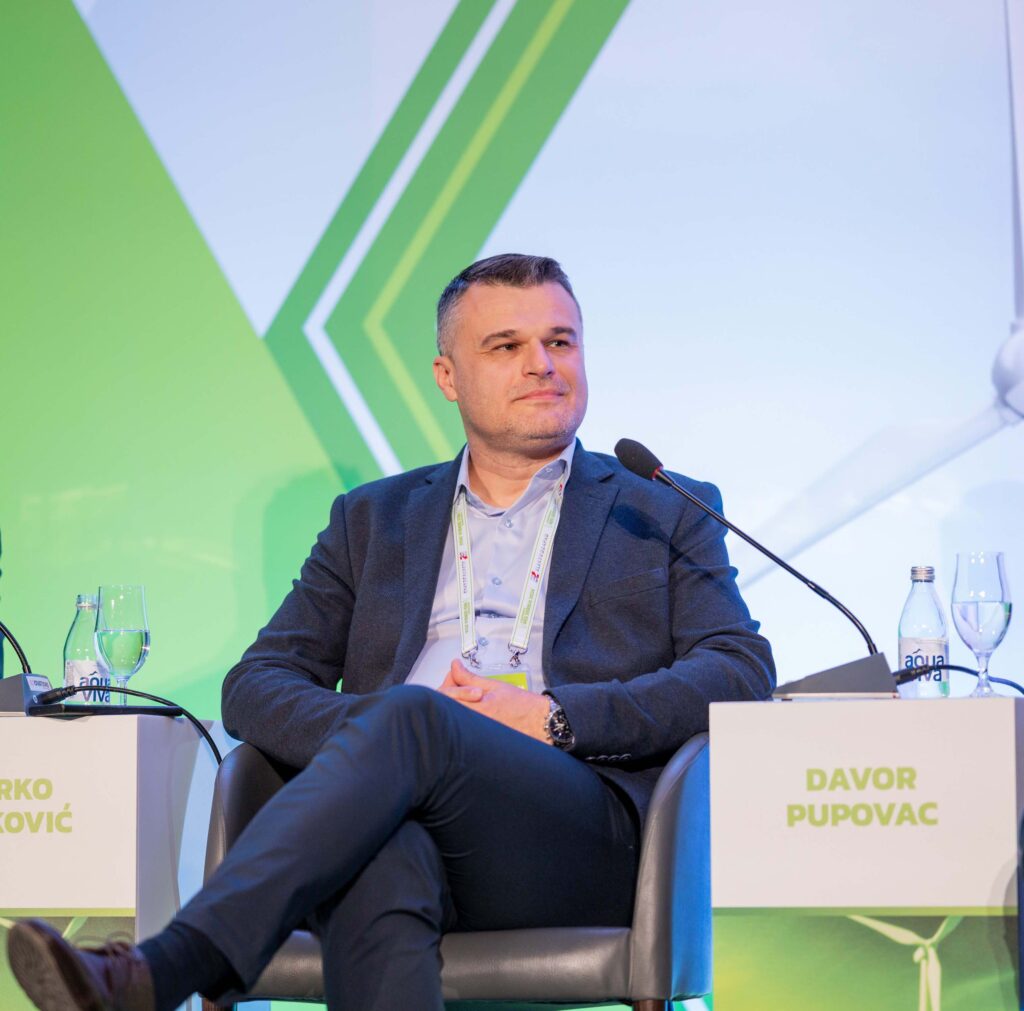
Head of Electricity Market Department of CWP Europe, Marko Janković
According to him, we should first ask ourselves whether we have sufficient amounts of resources for renewable sources, from wind, solar, biomass, then whether the regulation is good enough to conclude these contracts, as well as what is the price of electricity on the market and how much it costs to lend to all projects. Only then, as he says, will we know if we are a good country for the development of PPA contracts.
– There are strong regulatory incentives for renewables, and they are not in favor of PPA contracts, because everyone will wait for the state. Also, if the price of electricity is low and socially regulated, we cannot talk about PPA contracts – said Janković.
As he pointed out, CWP signed a physical long-term PPA with EPS, which, as he noted, is currently the contract with the highest value in Serbia.
He also referred to the ‘cannibalization’ in the energy sector, the phenomenon of lowering prices in the electricity market as RES capacities grow. This phenomenon ‘when a technology eats itself’ is very pronounced in solar, he pointed out.
– If the base price is 100 EUR, cannibalization has led to the price of electricity from solar in Germany in July 2023 being 75 EUR, and a year later 55 EUR – Janković warned, adding that the recipe for success in the future is the diversification of projects – Whoever does the diversification of ‘assets’ into wind, solar, batteries, will be a few steps ahead of others.

The winners of the auction conclude contracts with EPS
Davor Pupovac, Director of Electricity Trading and Risk Management at EPS, pointed out that after the first auctions for renewable energy sources, as expected, the largest number of winners wanted to conclude contracts with EPS.
– EPS offers purchase prices based on SEPEEX, we do not offer fixed prices yet. We can offer good conditions for a longer period of time – Pupovac pointed out, adding that at last year’s auctions the prices for solar were high, and that he expects more applicants at other auctions.
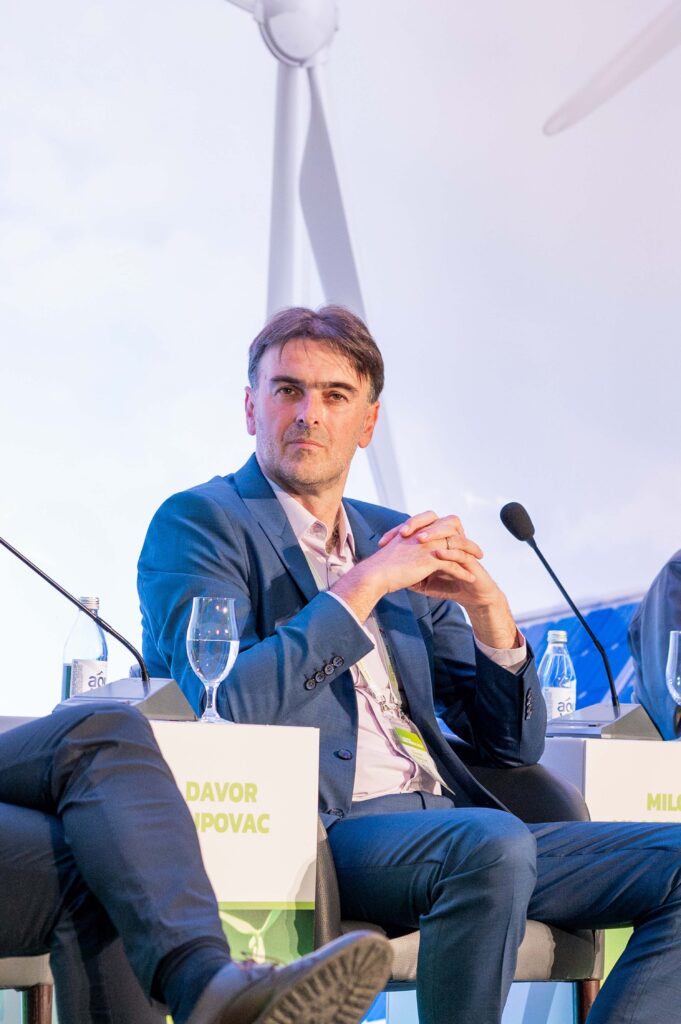
Davor Pupovac, Director of Electricity Trading and Risk Management at EPS
Asked how the strategic partnership for 1 GW of solar, which should soon come to life, will affect electricity prices, Pupovac said that EPS’s portfolio is changing, but that it will not have an impact on prices.
– We will have our own RES power plants, we are building traditional warehouses, such as the Bistrica pumped storage hydro power plant. All technology will have its place in the future of energy transition, even active customers – Pupovac pointed out.
Development of new projects in Croatia still blocked
Ante Tojčić, CEO of Croatian company Fractal, pointed out that the development of new projects in Croatia is still blocked. The lack of projects also affects the number of PPAs, and investors are still looking for some kind of security, which delays the development of the market share, he notes.
– We had auctions for large solar panels, 330 MW was awarded a premium, and the prices ranged from 48 to 59 EUR. Our Electric Power Industry is conservative and non-proactive, I am glad that EPS is entering the PPA – he said.
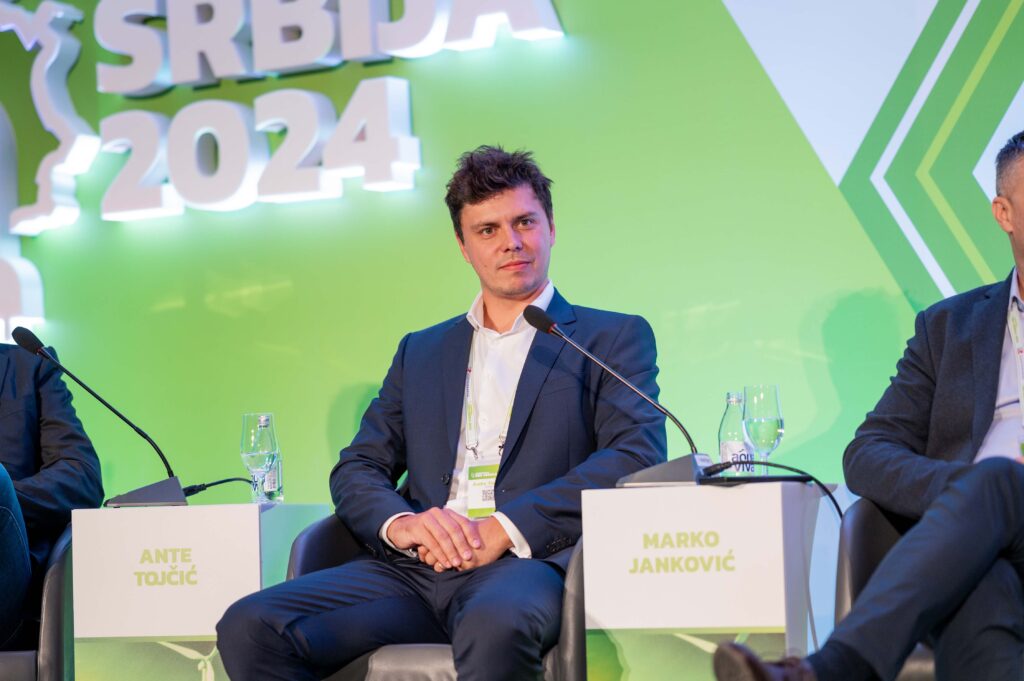
Ante Tojčić, CEO of Croatian company Fractal
He noted that the issue of connection is a problem in the region today for any project. According to him, hybrid power plants are being developed that combine wind and solar, the added value of which is if everything is located in the same location. As he says, a freestanding battery does not have a real economy, and hydro potential can be competitive in providing balancing services.
Consumption will be the key to the energy transition
Mladen Šicel, Head of the Contracting Department of KOER, believes that consumption will be the key to the energy transition. As he says, the development of the market is currently delayed, because everyone is waiting for premiums, while other projects are asking for 70-80 EUR per megawatt hour.
– Few specific contracts have been signed. It has been shown that developers value security more than PPA – he said, adding that the Serbian market will probably open up in the coming years.
Šicel emphasized that in Croatia, the problem of excess energy in the system is more common than a shortage.
– I believe that it will be in Serbia as well. Production capacities in all systems and regions are higher than consumption, surpluses of energy will be frequent and problematic for the system – warns Šicel.
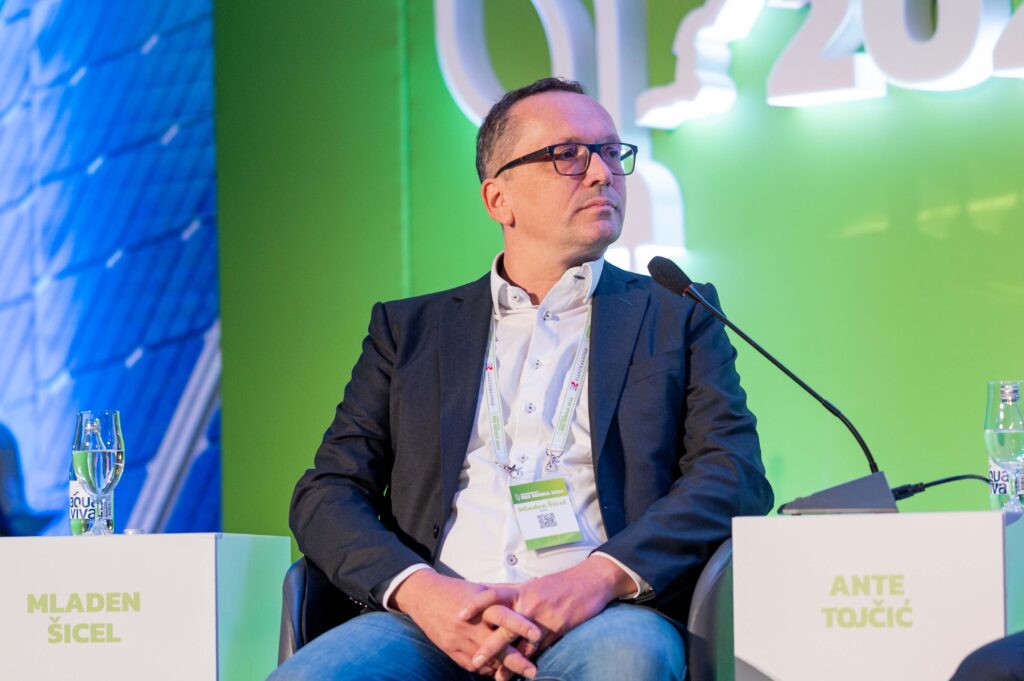
Mladen Šicel, Head of the Contracting Department of KOER
However, Miloš Mladenović does not agree with the projections of excess energy for Serbia.
– We don’t know if there will be a surplus of energy, in Croatia there will, we need capacity. The increase in RES capacity will be accompanied by an increase in consumption, so I do not believe that Serbia will have a surplus of energy – Mladenović concluded.


